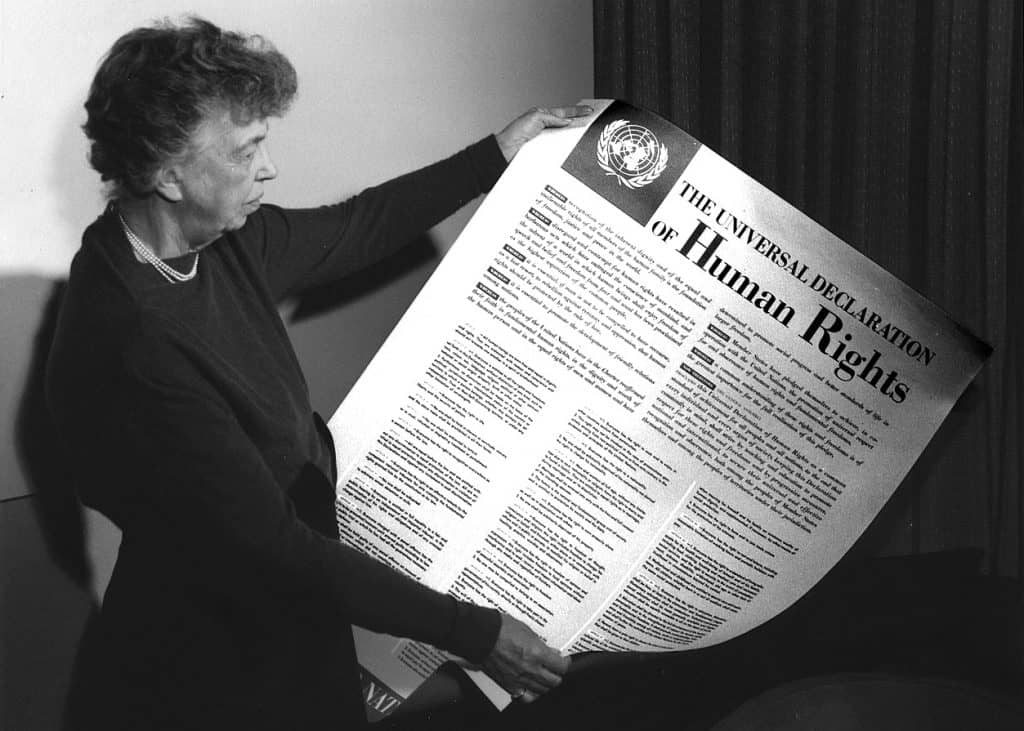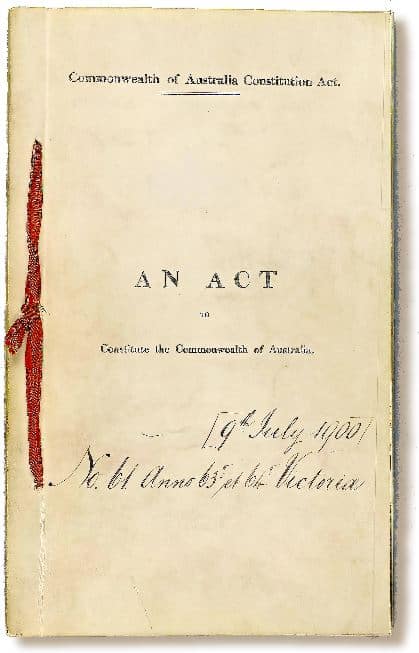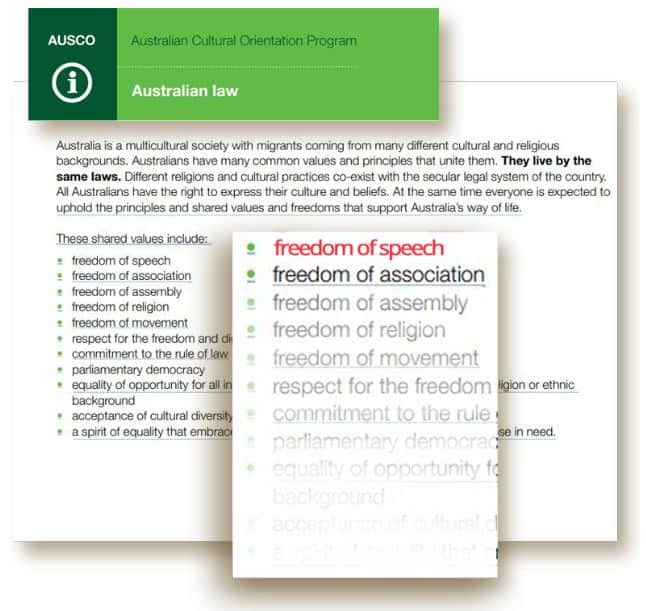Free Speech & the Law in Australia

Free Speech in Australia
We interrupt this page for a personal explanation, Mr Speaker.
In case you didn’t notice, this is a satirical website. The website is an act of love, of Australia and all its people. But not all their views.
No hurt, upset, insult, or “offence” is intended except for those who deserve it; for instance white supremacists, Mick Keelty, and people like Dutton, Morrison, Ruddock, Vanstone, Andrews all 5 of whom have headed the Ministry of Love – overseeing the indefinite incarceration of desperate refugees – and who have insisted that the reason was saving lives when the true agenda was saving seats in the western suburbs.
Values Australia satirises some true and some false opinions, including those that others have about Australia and those that Australians say about themselves.
In the millennia-old tradition, it satirises Australian and world politics and politicians.
Values Australia asserts its right to freedom of opinion and expression on the following grounds:
As the High Court has ruled several times, free speech is necessary to enable communication between citizens, to allow ideas and opinions to freely inform decisions on the merits of candidates and policies in a representative democracy. It can be argued that all communication between citizens, whatever the topic, is to some extent political.
What the High Court has ruled is, in fact, not that the citizens have individual rights to free speech, but that the Government may not introduce legislation that infringes or impinges upon the right to free speech.
As one academic paper has it, given the ruling in Coleman, “such a position is best justified by a substantive preference for a public debate that tolerates insult (and perhaps other uncivil forms of expression).“ And another suggests that the implied freedom of speech “includes not only speech, but also non-verbal communication regarding political and government matters, and its application is not confined to election periods.”
By the way, the State is not merely the Parliament, but also the Executive, Justice, Law Enforcement and the Media. And everything else. And ever since “the Divine Right of Kings” left the building, the Citizens “own” Everything, including the High Court itself.
The Australian Government has ratified several United Nations documents which stipulate untrammeled freedom of speech amongst all people.
Values Australia would not be particularly exercised about these matters if it weren’t that Bob, a senior bureaucrat clearly ignorant of all of the above, did at one stage ask Values Australia to take down this website because it might cause “offence”. *
You’ve already twigged to the fact that If offending diddums was truly a punishable crime then the courts would be full of plaintiffs decrying all manner of upsets. Every politician in the country could be incarcerated. In fact every citizen; we all offend someone sometime. And it would be impossible to provide verifiable evidence at the necessary level of “beyond reasonable doubt”, or even “the balance of probability”, that the plaintiff’s feelings were hurt and the level of upset that was experienced, given that these feelings are entirely internal. It is difficult to legislate emotions.
Values Australia is, frankly, constantly offended by the behaviour of Potato General, the Concentration Commandant, his Weltanschauung, the whining sound of his voice, his nasty past and his au pair present. Values Australia is also constantly offended by the social diseases Allen (“Joan”) Jones and “Bosie” Bollox, but Values Australia does not take these civic contagions to court because they could slither their slimey way out under the door.
Democracy is
“a system of government in which the sovereign power is vested in the people as a whole exercising power directly or by elected officials.”
That is, all the power, the only power, is held by the people themselves and not by the elected representatives, who are elected by the people to carry out the wishes of the people.
Respecting a person’s opinions or beliefs means to “observe”, to “consider”, to “take into account”. It does not mean you are required to “revere” or to “indulge” those beliefs. You can respect, even revere, a person as a human being, but you cannot be required to revere their beliefs or opinions, or to place theirs above your own. That would be against free speech.
To be clear, “politics” does not mean only the executive and the legislature. Politics does not mean the horrorshow and the lies that epitomise parliaments. Politics, from the Greek polites, “citizen”, means The People. And as a sovereign people in a democracy, the citizens collectively are the State and wholly own – and determine – the administration.
Freedom of speech is not a right or privilege which is generously bestowed upon – or can be summarily removed from – the compliant peasantry by Lords Temporal and Spiritual seated in some lofty citadel and asserting special privilege. The act of voting to elect a Parliamentary representative is not an act of abdicating responsibility, power, ownership, or rights to whoever emerges as the representative, and it does not exalt the representative to that lofty citadel, nor does it bestow on the representative powers over any citizen. The representative is always and only an employee of the State. Because the “polites”, the Citizens, are the State – the entire State – freedom of speech is fundamental and integral to the very fabric of the State. Our State is not a hierarchy. It is a democracy in which every citizen is exactly equal and has an equal say. If this were not so Australia would not be a Democracy.
* We didn’t comply, of course. I mean, obviously. You can read our response in the
World Famous Values Australia Blog.
Here’s a quick look at some of the many ways Australians have a “right” to free speech:
The United Nations

Free speech in Australia is stipulated, guaranteed and assured by numerous international agreements, declarations, covenants, by Australian laws, by implication in High Court rulings and by policy in government advice to bureaucrats, citizens and visitors
During World War II the Allies adopted freedom of speech as one of their basic war aims.
The United Nations Charter was signed in 1945. It committed all member states to promote universal respect for, and observance of, human rights and fundamental freedoms for all without distinction as to race, sex, language, or religion”.
The Universal Declaration of Human Rights was adopted by the UN General Assembly in 1948. Australia was one of the nine member states represented on the Drafting Committee.
The International Covenant on Civil and Political Rights is now included in the UDoHR. It is a multilateral treaty adopted by United Nations General Assembly Resolution 2200A (XXI) on 16 December 1966, and has been in force since 23 March 1976.
The right to freedom of opinion and expression (including “speech”) is addressed in Article 19:
Article 19
- Everyone shall have the right to hold opinions without interference.
- Everyone shall have the right to freedom of expression; this right shall include freedom to seek, receive and impart information and ideas of all kinds, regardless of frontiers, either orally, in writing or in print, in the form of art, or through any other media of his choice.
- The exercise of the rights provided for in paragraph 2 of this article carries with it special duties and responsibilities. It may therefore be subject to certain restrictions, but these shall only be such as are provided by law and are necessary:
For respect of the rights or reputations of others;
For the protection of national security or of public order, or of public health or morals.
Australian Law & Govt Advice

Common law
A well-established principle of statutory interpretation in Australian courts is that Parliament is presumed not to have intended to limit fundamental rights, unless it indicates this intention in clear terms. This includes freedom of expression.
Constitutional law
The Australian Constitution does not explicitly protect freedom of expression. However, the High Court has held that an implied freedom of political communication exists as an indispensable part of the system of representative and responsible government created by the Australian Constitution. It operates as a freedom from government restraint, rather than a right conferred directly on individuals.
In 1992 the majority of the High Court held that an implied freedom of political communication exists as an incident of the system of representative government established by the Constitution. This doctrine was reaffirmed in 2013

